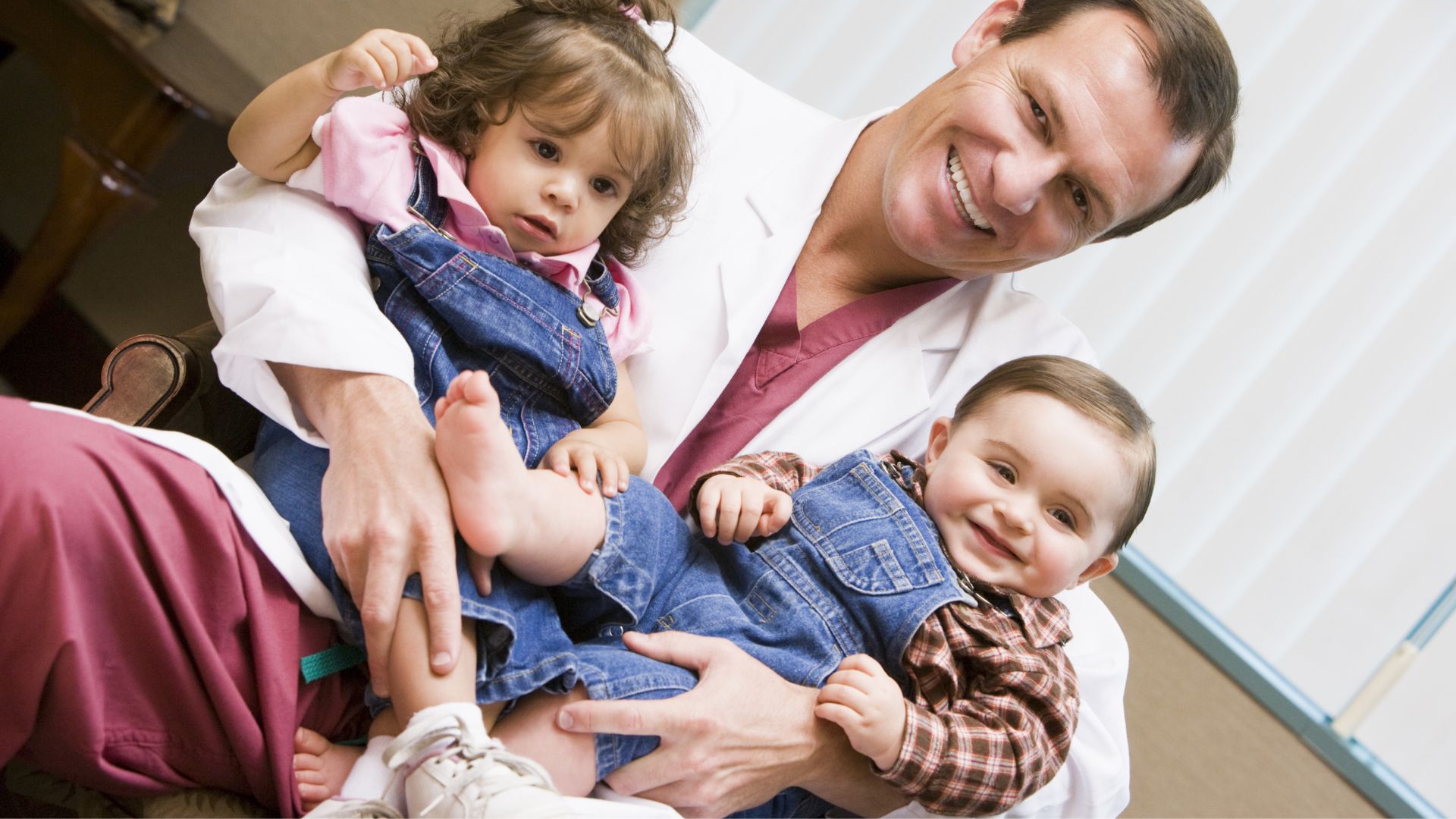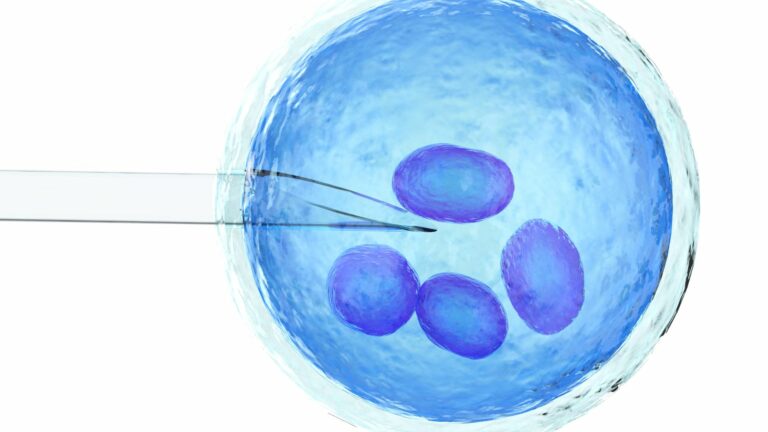
Physical Health and Development
In vitro fertilization (IVF) has revolutionized the lives of countless families facing infertility. As the number of IVF-conceived children grows, understanding their long-term health outcomes is crucial.
This two-part article delves into the current research to provide a thorough overview of the physical, cognitive, and social-emotional development of children born through IVF.
Birth Defects and Congenital Anomalies
One of the primary concerns for parents considering IVF is the potential risk of birth defects. Studies suggest a slightly increased risk (approximately 1%) of certain birth defects in IVF children compared to naturally conceived children.
These may include:
- Heart defects
- Cleft lip and palate
- Certain genital abnormalities
However, it’s essential to note that the vast majority of IVF babies are born healthy. To address potential concerns, parents can:
- Consult with a fertility specialist to discuss individual risk factors
- Consider preimplantation genetic testing (PGT-A) to screen embryos for chromosomal abnormalities
- Pursue early and regular prenatal care during pregnancy
Cardiovascular Health
Research on the long-term cardiovascular health of IVF children is an area of ongoing investigation. Some studies suggest potential subtle differences in cardiovascular markers, such as blood pressure and vascular function, in IVF-conceived children compared to naturally conceived peers.
However, the clinical significance of these findings remains unclear, and more long-term data is needed to draw definitive conclusions.
To support cardiovascular health in IVF-conceived children, parents can:
- Maintain open communication with their child’s pediatrician about any potential risk factors
- Encourage a heart-healthy diet, regular physical activity, and healthy lifestyle habits from an early age
- Stay informed on the latest research developments in this area
Metabolic Health
The potential impact of IVF on long-term metabolic health, including risks of obesity and diabetes, is another area of research interest.
Some studies have suggested a possible increased risk of these conditions in IVF-conceived children, but the findings have been inconsistent.
Factors such as parental health, gestational environment, and lifestyle habits may also play a role in metabolic health outcomes.
To promote optimal metabolic health, parents of IVF-conceived children can:
- Foster healthy eating habits and encourage regular physical activity as a family
- Attend regular well-child visits with their pediatrician to monitor growth and development
- Address any concerns about weight or metabolic health promptly with their child’s healthcare provider
Respiratory Health
A few studies have investigated the potential link between IVF and respiratory health, particularly the risk of asthma.
While some research suggests a slightly increased risk of asthma in IVF-conceived children, the findings have been mixed, and the underlying mechanisms are not well understood.
More research is needed to clarify any potential associations between IVF and respiratory health.
Parents can support their child’s respiratory health by:
- Maintaining a smoke-free environment at home and avoiding exposure to environmental pollutants
- Following a balanced diet rich in fruits, vegetables, and whole grains, which may help support lung health
- Discussing any respiratory concerns with their child’s pediatrician and following recommended management strategies
Skeletal Development
Limited research has explored the potential impact of IVF on skeletal development and bone health. Some studies have suggested possible differences in bone mineral density or bone metabolism markers in IVF-conceived children compared to naturally conceived peers.
However, the long-term implications of these findings are not yet clear, and more research is needed to understand any potential risks or considerations.
To support their child’s skeletal health, parents can:
- Encourage regular physical activity, including weight-bearing exercises, to promote bone strength
- Ensure adequate intake of calcium and vitamin D through a balanced diet or supplements as recommended by their pediatrician
- Attend regular well-child visits to monitor growth and development, including bone health
Key Takeaways
- The majority of IVF-conceived children are born healthy, with only slightly increased risks of certain birth defects and congenital anomalies
- Research on the long-term cardiovascular, metabolic, respiratory, and skeletal health of IVF-conceived children is ongoing, with some studies suggesting potential subtle differences compared to naturally conceived peers
- Parents can support their child’s physical health by maintaining open communication with healthcare providers, encouraging healthy lifestyle habits, and staying informed on the latest research developments
Cognitive Development and Academic Performance
One of the most reassuring findings in IVF child health research is the lack of significant differences in cognitive development and academic performance compared to naturally conceived children.
Numerous studies, including a comprehensive review in Fertility and Sterility, have shown that IVF-conceived children have similar:
- IQ scores
- Language development
- Memory and attention skills
- Educational attainment
- Professional outcomes later in life
To nurture their child’s cognitive growth, parents can:
- Foster a stimulating home environment that encourages learning and exploration
- Engage in regular educational activities, such as reading, puzzles, and creative play
- Stay involved in their child’s education and address any concerns promptly
- Seek support from their pediatrician or a child development specialist if needed
Social-Emotional Development
Another area of interest for parents is the social-emotional well-being of IVF-conceived children. Research consistently shows no increased risk of behavioral problems, emotional difficulties, or social adjustment issues in children born through IVF. Studies have found that IVF-conceived children:
- Form healthy attachments and relationships with family and peers
- Display similar levels of self-esteem and emotional regulation
- Have comparable rates of anxiety, depression, and other mental health concerns
- Report similar overall life satisfaction and quality of life
Parents can support their child’s social-emotional development by:
- Providing a nurturing and supportive family environment
- Encouraging positive relationships with family members and peers
- Modeling healthy emotional expression and coping strategies
- Seeking professional support if concerns arise about their child’s mental health or social functioning
Factors Influencing Health Outcomes
While research on the long-term health of IVF-conceived children is generally reassuring, it’s important to acknowledge that several factors beyond the IVF process itself can influence health outcomes:
- Underlying infertility factors: Conditions like endometriosis, PCOS, or male factor infertility can impact offspring health independently of IVF. Parents should discuss their specific diagnosis and potential genetic risks with their fertility specialist.
- Multiple births: IVF pregnancies have a higher likelihood of multiple births, which can increase the risk of prematurity, low birth weight, and developmental delays. Parents should consider the risks and benefits of transferring multiple embryos with their doctor.
- Maternal age: Advanced maternal age, common in IVF, can impact offspring health. Parents should optimize their health before pregnancy, especially if over 35, and seek high-risk pregnancy care if needed.
- IVF procedures: Researchers are exploring whether specific aspects of IVF, like the culture media used or the cryopreservation process, could subtly influence child health outcomes.
Parents should choose a reputable IVF clinic in their area, such as IVF centers in Gurgaon, IVF centers in Kochi, IVF centers in Jamshedpur, IVF centers in Dehradun, IVF centers in Kolapur, IVF centers in Warangal, IVF centers in Mangalore, IVF centers in Tirunelveli, or IVF centers in Udaipur, and discuss the latest research with their doctor.
The Big Picture: Long-Term Health Trajectories
The current evidence, including a 2021 study in JAMA, points to overall positive health trajectories for the majority of IVF-conceived individuals.
While some studies suggest subtle differences in specific health markers, these differences often do not translate into clinically significant health problems later in life.
However, continued long-term research is essential to fully understand any potential health implications across the lifespan.
Parents can stay informed by following updates from reputable organizations like the American Society for Reproductive Medicine (ASRM) and the Centers for Disease Control and Prevention (CDC).
Optimizing IVF Child Health: An Action Plan for Parents
- Choose a reputable IVF clinic with experienced specialists and transparent success rates
- Discuss individual risk factors and potential genetic risks with your fertility specialist
- Consider preimplantation genetic testing (PGT-A) to screen embryos for chromosomal abnormalities
- Pursue early and regular prenatal care during pregnancy
- Maintain open communication with your child’s pediatrician about any potential health concerns
- Encourage a balanced diet, regular physical activity, and healthy lifestyle habits from an early age
- Foster a stimulating home environment that promotes learning and social-emotional development
- Stay informed on the latest research developments and consult with specialists as needed
The Bottom Line
The decision to pursue IVF is deeply personal and should involve careful consideration and consultation with healthcare professionals.
While research on the long-term health of IVF-conceived children is ongoing, the current evidence provides many reasons for optimism.
Most children born through IVF are healthy and demonstrate similar physical, cognitive, and social-emotional development as naturally conceived children.
By staying informed, proactive, and focused on providing a nurturing environment, parents can help their IVF-conceived children thrive and reach their fullest potential.






